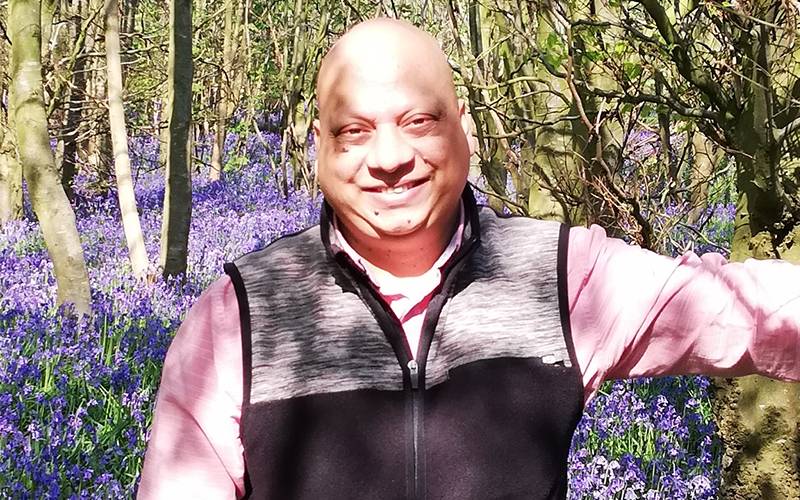This month we speak to Dr Mohammad Shamsudduha to find out how his research on water risks and resilience in humanitarian and development contexts is improving the health of the public.

What is your role and what does it involve?
I am Associate Professor in Humanitarian Science at UCL Institute for Risk and Disaster Reduction. I am leading a new BSc programme in Global Humanitarian Studies and research on the theme of water risks and resilience in humanitarian and development contexts.
How are you improving the health of the public?
My research is collaborative and interdisciplinary in nature. The main focus of my research is the sustainable development of Earth’s freshwater resources, particularly in the Global South as well as globally. For more than a decade, I have been working in Bangladesh and South Asia on the research topics of drinking water contamination with elevated arsenic and salinity concentrations and public health impacts of long-term exposure to contaminated water supplies. Other collaborative research that I worked on in Bangladesh looked into how exposure to high salinity in drinking water affects newborns and women’s health during pregnancy (for example, pre-eclampsia linked to high blood pressure). My research has raised awareness of the health effects of contaminated drinking water and informed policy-makers in developing mitigation measures and interventions in affected communities.
What do you find most interesting or enjoyable about your work?
I am very passionate about my work, and I really love my research. There are several aspects of my research that I enjoy the most. These include going out to the field to collect water samples, measuring water levels in boreholes, talking to people in the community about my research, analysing data and creating meaningful and colourful visualisations through maps and graphs. I love the art of creating maps and this has now become one of my most favourite habits. Whenever I feel a bit lost or down, I start creating maps – this is where I find peace and motivation. I also love to talk to and teach my students about my research findings and technical skills. After all, as an academic, my responsibility is to pass on my knowledge and skills to the next generation of researchers.
How have cross-disciplinary collaborations shaped your research?
Over the course of time, my research has become more cross and interdisciplinary in nature. This is mainly because of the area of my research that revolves around water, climate, people, and health. I have worked on a number of cross-disciplinary collaboration projects over the last fifteen years since I joined UCL as a PhD student. My academic background is in hydrogeology or groundwater science. However, my collaborators come from public health, epidemiology, population science, social science, medical science, and digital data science backgrounds. For example, I am currently leading data-driven, global-scale research that is funded by the Natural Environment Research Council (NERC) under a ‘discipline-hopping’ award in which my collaborators from UCL and overseas are looking at how exposure to extreme weather and climate conditions affects adverse pregnancy outcomes.
What advice would you offer to others interested in developing cross-disciplinary research?
I think cross-disciplinary research is much more exciting than mono-disciplinary research – not that mono-disciplinary research is less important. I certainly see the positive impacts on my own thought-process and approaches to environmental problems due to cross-disciplinary research collaboration. My advice to other researchers, particularly to those who are in their early careers, would be to think ‘outside the box’ and speak with colleagues from other departments and ask them how they would approach your research questions. Innovations begin when like-minded people get together from different research and academic backgrounds and work across disciplinary boundaries.
What's next on the research horizon for you?
I am developing more inter- and cross-disciplinary project ideas with colleagues and collaborators for potential research funding. The next research project that I am thinking of leading will involve global-scale mapping of salinity contamination using water-quality data and applying machine learning and geospatial techniques. My collaborators and I will map out the exposure of populations to saline drinking water at a global scale.
If you could make one change in the world today, what would it be?
If I had the power and authority, I would ask the world’s leaders to stop all the ongoing violence and humanitarian crises from around the world, and instead work together to fight the climate emergency, poverty, and inequality. Some 2.2 billion people around the world do not have a safely managed drinking water service – that is access to drinking water from sources located on premises, free from contamination and available when needed. I wish I had the resources and team to address these global humanitarian challenges.
 Close
Close

